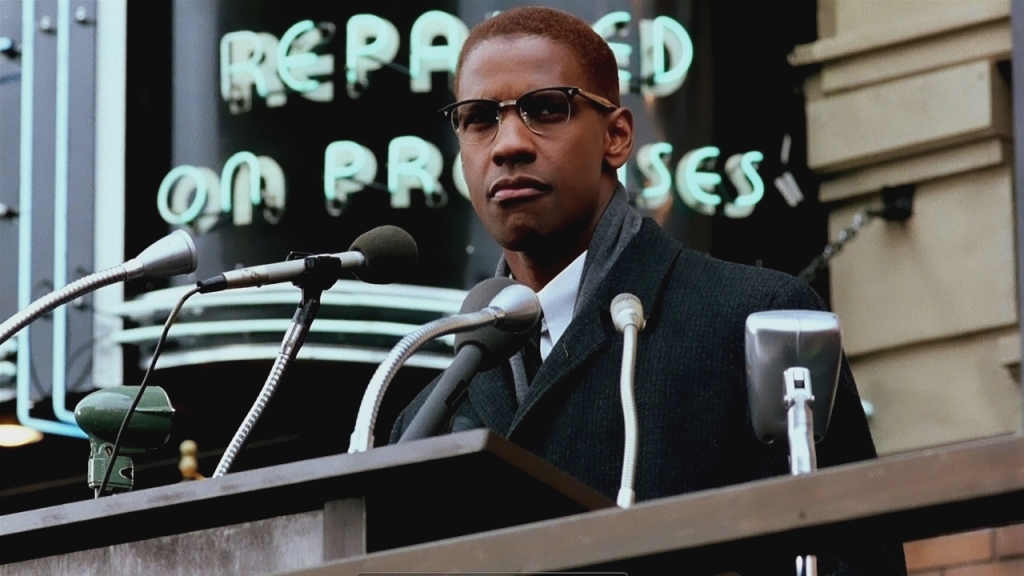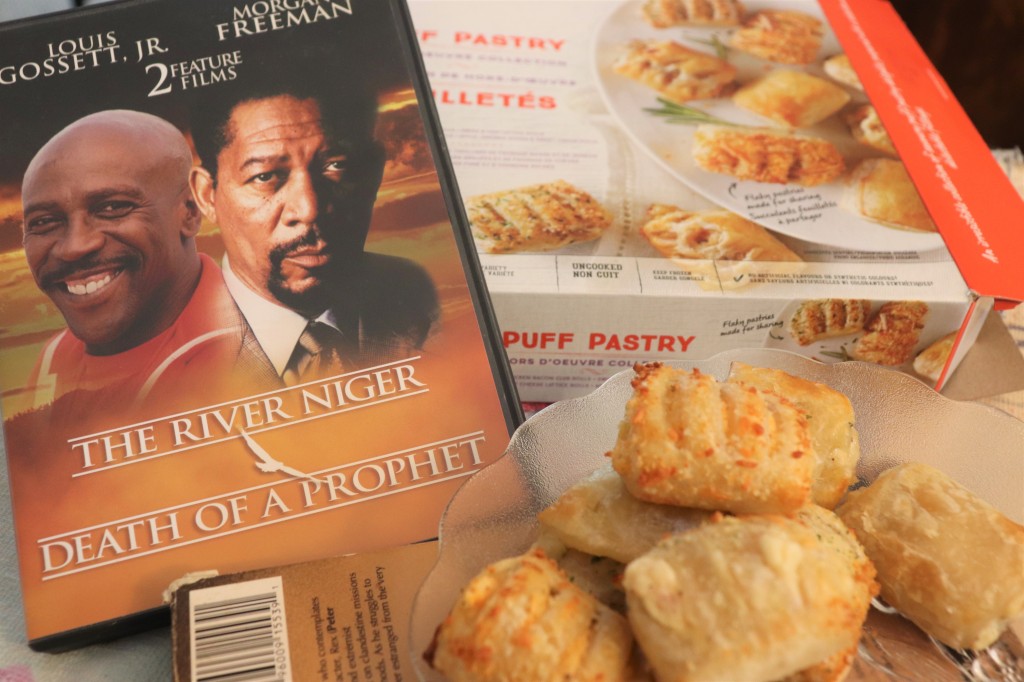Sometimes a filmmaker puts such a definitive stamp on a historical event or figure that it can outright delete previous cinematic depictions from the public consciousness.
James Cameron’s Titanic (1997), for example, was a cultural and financial juggernaut when it was first released, so much so that it became the go-to rendering of this 1912 oceanic disaster for an entire generation of movie goers.
As a result, a lot of people my age don’t even know that half-a-dozen or so Titanic-centric feature films and TV movies came out before 1997, although a lot of these generational blind spots could be blamed on modern streaming services failing to stock up on older media.
A similar phenomenon is at work with the first 20 minutes of Steven Spielberg’s Saving Private Ryan (1998), since this brutal, unflinching portrayal of the 1944 D-Day invasion turned into an aesthetic template that was adopted by countless future films, TV series, and even video games set during World War Two.
But in terms of biopics, few films are as comprehensive as Spike Lee’s Malcolm X (1992), a three-and-a-half-hour epic that tracks the controversial civil rights leader’s life from his younger years all the way to his assassination in 1965.
Even though these birth-to-death biopics are usually exhausting experiences, Lee’s ferocious directing combined with Denzel Washington’s Oscar-caliber lead performance proved to having staying power with generations of movie-goers, so much so that this motion picture (like the previous two examples) was entered the U.S. National Film Registry decades later.
Lee’s Malcolm X is so influential that it’s easy to forget all the other times the Black empowerment icon showed up on the big and small screen prior to 1992, even with a big-time actor like Morgan Freeman taking on the role in Woodie King Jr.’s Death of a Prophet (1981).
But while this low-budget TV movie definitely has its merits, it’s easy to see how it got lost in the pop culture shuffle and eclipsed by future projects like Malcolm X.
Not only is Death of a Prophet plagued with head-scratching filmmaking decisions, but King Jr. also does a poor job of putting the events on screen in the proper context, which does a real disservice to such an important historical figure.
Instead of covering Malcolm X’s entire life, Death of a Prophet focuses on the 24 hours leading up to his demise, attempting to provide a small-scale portrait of a larger-than-life figure who knew his days were numbered.
Even though this premise is loaded with potential, the end product isn’t very compelling and comes across as an unfinished documentary that needed some additional footage.
Freeman spends a lot of his screen time wandering through the streets of New York City, where he bumps into some hippies, chats with a local bookstore owner, and is confronted by members of the FBI.
Throughout these encounters, the audience is rarely provided any real insight into Malcolm’s state of mind, with Freeman never getting the chance to flex any emotional range beyond some stern stoicism.
Meanwhile, the film also spends a distracting amount of time following Malcolm X’s assassins as they prepare for his eventual killing at Manhattan’s Audubon Ballroom.
These scenes similarly fall flat, since King Jr. is only interested in having these characters discuss the logistics of the hit and bizarrely showcase the strength of their abdominal muscles at a karate dojo.
In both parallel storylines, the director is reluctant to fill audiences in on the historical events and political intrigue that led up to this point, namely Malcolm X’s split from and growing hostility towards the Nation of Islam.
Maybe this was done to avoid ruffling any feathers in the Black community, since the true identity of Malcolm X’s killers remains a contentious topic of debate even to this day.
But whatever the reason, the choice to deprive Death of a Prophet of all these critical background details robs the story of any real weight, especially for someone who isn’t familiar with Malcolm X’s legacy ahead of time.
The film’s low production values also don’t do a great job of selling the serious story that King Jr. is trying to tell.
Not only is the audio recording of the character dialogue pretty spotty, but the prominent hand-held camera work and dingy lighting can sometimes give off the impression that you are watching a series of home movies rather than a civil rights drama.
However, this biggest production shortcoming in Death of a Prophet can be found in the make-up and hairdressing departments, since they didn’t even try to make Freeman look like his historical counterpart.
I mean, would it have been that expensive to give the star of your movie a haircut?
On the other hand, this amateurish feel does imbue the film with a kind of rough-around-the-edges charm that occasionally manifests on screen.
While the recording of character dialogue is rough, King Jr. and his team inject the project with some naturalistic sound that does a decent job of setting the mood.
This heavy ambiance is most prevalent in the middle of the film, where Freeman is accompanied by a cacophony of honking cars and chattering bystanders as he makes his way through the streets of Manhattan, his paranoia of an impending assassination growing by the second.
When it comes to non-diegetic sound, Death of a Prophet features an energetic jazz score full of woodwind, brass, and percussion instruments that similarly manage to crank up the tension.
In fact, portions of the film even reminded me of Alejandro Iñárritu’s Birdman (2014), which also used an aggressive, drum-heavy score to foreshadow the main character’s impending demise.
And while King Jr.’s hand-held shooting style is a little clumsy at times, this technique gives the film a gritty, documentary-like feel that calls back to the vibrant Blaxploitation cinema of the previous decade.
This documentary-like quality extends to the film’s opening six minutes, which features interviews with people who knew Malcolm X in real life, like activist Yuri Kochiyama, poet Amiri Baraka, and actor Ossie Davis.
So even though King Jr.’s filmmaking craft and presentation of history is seriously flawed, it’s difficult to deny his passion for the main subject matter.
In retrospect, Death of a Prophet comes across as the director’s attempt to keep Malcolm X’s legacy alive 16 years following his death.
After all, his depictions in film and television up until that point (excluding an Oscar-nominated documentary from 1972) were relegated to supporting roles in bio pics featuring more mainstream civil rights heroes, like Muhammed Ali and Martin Luther King Jr.
By placing Malcolm X at the centre of his own story, one could argue that Death of a Prophet sets the stage for more comprehensive biopics down the line, with Spike Lee’s epic hitting theatres just over a decade later.
But even with the benefit of historical hindsight, Death of a Prophet still comes across as a half-baked appetizer that’s meant to tide you over for a full course meal.
Sure, you can appreciate it in the moment, but only because you know something way better will be served up shortly.

Verdict:
4/10
Corner store companion:
President’s Choice Puff Pastry Hors D’Oeuvres Collection (because they’re tasty enough, but can’t serve as a substitute for an actual meal)

Fun facts:
-Woodie King Jr.’s film and television projects pale in comparison to his work on stage, since he founded the New Federal Theatre in 1970 to better showcase African American playwrights. King Jr. wrote, directed, and produced dozens of plays throughout his multi-decade career, which netted him plenty of accolades (like the NAACP Image Award in 1988).
-Outside Morgan Freeman and Denzel Washington, Malcolm X has been portrayed by a variety of notable actors on film, television, and the stage. This list includes: James Earl Jones (The Greatest, 1977), Al Freeman Jr. (Roots: The Next Generations, 1979), Mario Van Peebles (Ali, 2000), Nigél Thatch (Selma, 2014), and Kingsley Ben-Adir (One Night in Miami, 2020).
-The percussion-heavy score featured in Death of a Prophet was composed by drummer Max Roach, who is known for being a pioneer in the bebop style of jazz.
–Death of a Prophet can currently be watched in its entirety on YouTube:

